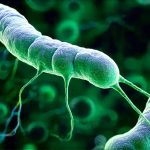The modern food environment is characterized by readily available, highly palatable snacks. This constant accessibility has led to a significant increase in frequent snacking behaviors across all age groups. While seemingly innocuous, this shift in eating patterns – moving away from distinct meal times and towards continuous nibbling – can have profound implications for our digestive system and the complex community of microorganisms residing within us, known as the gut microbiota. Understanding these impacts is crucial, not just for optimizing digestive health but also for recognizing the far-reaching consequences of frequent snacking on overall wellbeing. It’s less about whether we snack, and more about how and what we snack on that determines the outcome.
Traditionally, our digestive system evolved to process food in distinct episodic events – meals followed by periods of fasting. This rhythm allows for essential processes like gastric emptying, intestinal motility, and nutrient absorption to occur efficiently. Frequent snacking disrupts this natural ebb and flow, placing a continuous burden on the digestive organs and potentially altering the delicate balance within the gut microbiome. The constant influx of food doesn’t allow the system time to ‘rest’ and repair, leading to potential issues ranging from indigestion and bloating to more chronic conditions over time. This article will explore the intricate relationship between frequent snacking, digestive function, and microbial balance, providing insight into how we can make informed choices for a healthier gut. You can learn more about this in irregular eating and its effects on your body.
The Digestive System Under Constant Demand
Frequent snacking fundamentally alters the physiological demands placed on the digestive system. Instead of experiencing defined periods of activity followed by rest, the stomach and intestines are perpetually engaged in processing food. This continuous workload can lead to several disruptions. Firstly, it impacts gastric emptying, the rate at which food moves from the stomach to the small intestine. Continuous snacking means the stomach is rarely fully emptied before more food arrives, potentially leading to feelings of fullness, bloating, and even indigestion. Secondly, intestinal motility – the muscular contractions that move food along the digestive tract – can become erratic. The constant stimulation may lead to either accelerated or slowed transit times, both of which can impact nutrient absorption and contribute to discomfort.
Moreover, the type of snacks commonly consumed exacerbates these problems. Many readily available snacks are high in processed sugars, unhealthy fats, and lack essential fiber. These components are often more difficult for the digestive system to break down, requiring greater effort and potentially leading to inflammation. The body’s natural digestive enzymes might be overworked trying to process these foods, hindering their ability to efficiently handle other nutrients from healthier sources. A continuously stressed digestive system is less efficient at performing its core functions. This can lead to malabsorption of vital nutrients, impacting energy levels, immune function, and overall health. Certain beverages may also contribute to this issue; consider the impact of cold on your digestive system.
Finally, the hormonal responses associated with frequent eating contribute to the issue. Each time we eat, insulin levels spike as the body attempts to regulate blood sugar. Constant snacking leads to chronic fluctuations in insulin, potentially contributing to insulin resistance over time and increasing the risk of metabolic disorders. This also impacts other digestive hormones that regulate appetite and satiety, creating a vicious cycle of craving and consumption.
Impact on Specific Digestive Processes
The impact of frequent snacking isn’t uniform across all digestive processes; some are more significantly affected than others. One key area is pancreatic function. The pancreas produces enzymes essential for digesting fats, proteins, and carbohydrates. Constant stimulation from regular food intake can overwork the pancreas, potentially leading to inflammation or even pancreatic insufficiency in the long run. This means the body may struggle to effectively break down these macronutrients, leading to digestive discomfort and malabsorption.
Another affected process is bile acid metabolism. Bile acids are produced by the liver and stored in the gallbladder, released into the small intestine to aid in fat digestion. Frequent snacking can disrupt the normal cycle of bile acid production and reabsorption. A less efficient bile acid system impacts fat digestion and absorption, potentially leading to steatorrhea (fatty stools) and reduced uptake of fat-soluble vitamins like A, D, E, and K.
Finally, the lower intestinal environment is particularly vulnerable. The colon relies on periods of fasting for proper cleansing and microbial balance. Constant food arrival disrupts this process, potentially leading to an overgrowth of certain bacterial species and contributing to symptoms like bloating, gas, and altered bowel habits. The lack of resting time also prevents adequate fermentation of undigested carbohydrates in the colon, which can impact the production of short-chain fatty acids – beneficial compounds vital for gut health. You might want to explore tight jeans and how they may affect this too.
The Role of Fiber & Snack Choices
While frequent snacking can be detrimental, the severity depends heavily on what we’re snacking on. Snacks lacking fiber are particularly problematic. Fiber slows down digestion, providing a sense of fullness and preventing rapid spikes in blood sugar. It also serves as food for beneficial gut bacteria, promoting their growth and diversity. Therefore, choosing snacks rich in fiber can mitigate some of the negative effects.
Here’s how to make better snack choices:
1. Prioritize whole foods over processed options. An apple with peanut butter is vastly different from a bag of chips.
2. Look for snacks containing protein and healthy fats alongside carbohydrates, which helps stabilize blood sugar levels and promote satiety.
3. Be mindful of portion sizes – even healthy snacks can contribute to digestive overload if consumed in excess.
It’s important to remember that the gut microbiome thrives on diversity. A diet consisting solely of refined sugars or processed foods will lead to a less diverse microbial community, while incorporating a variety of plant-based foods provides fuel for different bacterial species and promotes a healthier gut ecosystem. Strategic snack choices can transform frequent snacking from a digestive burden into an opportunity for nourishing both the body and the microbiome. The impact of aging may also affect how your body processes these snacks.
Microbial Imbalance & The Gut Ecosystem
The gut microbiota – the trillions of bacteria, fungi, viruses, and other microorganisms residing in our digestive tract – plays a pivotal role in overall health. It influences digestion, immunity, nutrient absorption, and even mental wellbeing. Frequent snacking, particularly on processed foods high in sugar and fat, can dramatically alter the composition and function of this microbial ecosystem, leading to dysbiosis – an imbalance in gut bacteria.
This imbalance occurs because certain bacterial species thrive on simple sugars and refined carbohydrates. When these are consumed frequently, they outcompete beneficial bacteria that rely on fiber and complex carbohydrates for sustenance. This leads to a reduction in microbial diversity – a hallmark of an unhealthy gut. A less diverse microbiome is less resilient and less capable of performing its essential functions. It’s akin to having a monoculture crop versus a biodiverse forest; the monoculture is far more vulnerable to disruptions.
Furthermore, dysbiosis can increase intestinal permeability, often referred to as “leaky gut”. This occurs when the tight junctions between cells in the intestinal lining become compromised, allowing undigested food particles, toxins, and bacteria to leak into the bloodstream. This triggers an inflammatory response, which can contribute to a wide range of health problems beyond digestive issues. Chronic inflammation is at the root of many modern diseases. Understanding cancer’s impact on digestion is also important in this context.
The Impact on Short-Chain Fatty Acid Production
Short-chain fatty acids (SCFAs) are metabolites produced when beneficial gut bacteria ferment fiber in the colon. These SCFAs – primarily acetate, propionate, and butyrate – provide numerous health benefits:
– Butyrate is a primary energy source for cells lining the colon, promoting their health and reducing inflammation.
– Propionate helps regulate blood sugar levels and cholesterol metabolism.
– Acetate impacts brain function and immune regulation.
Frequent snacking, especially on low-fiber foods, reduces the amount of fiber available for fermentation, leading to decreased SCFA production. This compromises the beneficial effects these compounds provide to the gut and overall health. The lack of butyrate, in particular, can weaken the intestinal barrier, exacerbating leaky gut syndrome and contributing to chronic inflammation.
Rebuilding a Healthy Microbiome
Reversing the negative impacts of frequent snacking on the gut microbiome requires a multifaceted approach focused on dietary changes and lifestyle adjustments. One key strategy is increasing fiber intake – gradually incorporating more fruits, vegetables, whole grains, and legumes into the diet. This provides sustenance for beneficial bacteria and promotes SCFA production.
Another crucial step is reducing consumption of processed foods, sugary drinks, and unhealthy fats. These contribute to dysbiosis and feed harmful bacterial species. Consider adding fermented foods to your diet – yogurt, kefir, sauerkraut, kimchi – as these contain live probiotics that can help repopulate the gut with beneficial bacteria.
Finally, stress management is essential. Chronic stress negatively impacts the gut microbiome, so incorporating practices like mindfulness, yoga, or meditation can support a healthier gut ecosystem. A holistic approach that addresses both diet and lifestyle is crucial for rebuilding a balanced and resilient gut microbiota. Meal frequency plays an important role in this process as well.
The information provided in this article is intended for general knowledge and informational purposes only, and does not constitute medical advice. It is essential to consult with a qualified healthcare professional for any health concerns or before making any decisions related to your health or treatment.


















